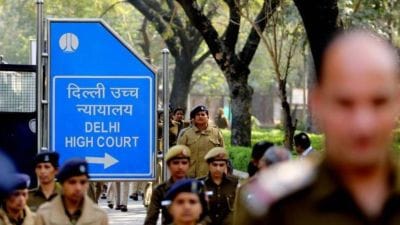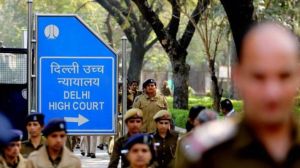Tea-workers Smell the Coffee
‘‘RATANPUR bagichat, eti koli duti paat, komal duti angulire koneno singile, o’ koneno singile.’’ Thus sang Bhupen ...

‘‘RATANPUR bagichat, eti koli duti paat, komal duti angulire koneno singile, o’ koneno singile.’’ Thus sang Bhupen Hazarika, Assam’s well-known bard, while paying tribute to the tea-garden labourers who work magic with their nimble fingers, picking two leaves and a bud.
Forty years later, the song seems almost like an anachronism, with the 75 lakh teaworkers shedding much of the traditional baggage that defined them for a century-and-a-half: Illiteracy, political insignificance and an abysmal idea of the self.
The most prominent product of the awakening, of course, is Paban Singh Ghatowar, four times Lok Sabha member and new president of the Assam Pradesh Congress Committee. ‘‘I often wanted to accompany my mother when she left to pluck tea leaves in Dumordulling. But she always sent me back, saying I should be attending school,’’ recalls Ghatowar. He went on to do his BA from the reputed St Anthony’s College in Shillong, after which he also took a degree in law.
Thereafter, he became one of the frontline leaders of the Assam Chah Mazdoor Sangha before rising to be its president. Then he went on to give another dimension to former Congress president D K Barooah’s statement that as long as the ‘‘Ali (Muslims), coolie (the tea labourer) and the Bangali (the East Bengal migrant)’’ were with the Congress, it had no cause to worry. First elected to the Lok Sabha in 1991, Ghatowar was a minister of state in the Narasimha Rao government.
Ghatowar may be the most prominent member of the community, but there are plenty of others who have made their presence felt. Haren Bhumij, in fact, preceded Ghatowar to the Lok Sabha in 1977, while Prithvi Majhi was sent to Rajya Sabha by the Congress in 1983. Bhadreswar Tanti, yet another prominent leader from the community, was an MP from the Asom Gana Parishad in 1985. Majhi has been subsequently elected to the Assam Assembly three times in a row and is currently the Speaker, the first from the community to occupy this prestigious office.
Members from the tea labour community have always occupied a significant position in the Assam Assembly. The current Assembly, for instance, has 13 of them, with at least two finding berths in the Tarun Gogoi government. Rupom Kurmi, is the first woman from the community to be an MLA, and also the first woman graduate from her community.
‘‘Our people have made their presence felt in almost every field, not just politics,’’ says Ghatowar, who is often projected as a future CM.
Samir Tanti and Sananta Tanti bear him out. Both are highly regarded poets in Assamese. ‘‘People often tend to notice only those in politics. A P Sarwan, the first IAS officer from our community, was chief secretary in the late 1980s. Romanus Horo, a 1988 batch IAS officer is currently the chief executive of the Tea Board in Guwahati,’’ points out Sananta Tanti.
But members of the community caution observers against the equation of these achievers with the labourers at large. ‘‘Illiteracy is still a major problem. Hardly 15 per cent of our people are literate in the truest sense. And this creates problems like poor health conditions, sanitation and liquor addiction,’’ says minister Rupom Kurmi.
Speaker Majhi too subscribes to her views. ‘‘We are all equally to be blame for the poor condition of the tea labourers. We have to shoulder the responsibility to improve their living conditions and motivate them to educate their children,’’ she says.





- 01
- 02
- 03
- 04
- 05


























